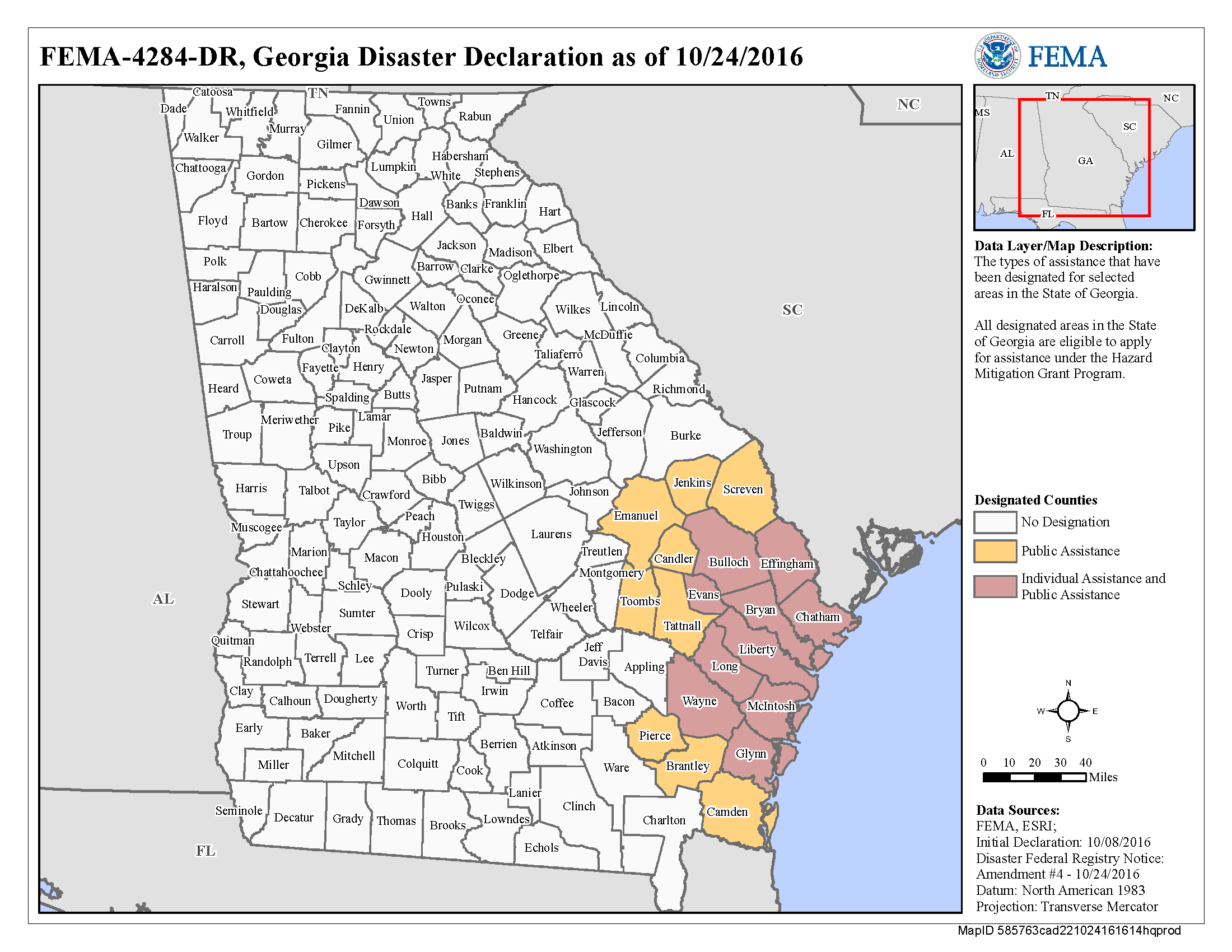PRESS RELEASE // ATLANTA, GA – Homeowners, renters and business owners in Evans, Liberty and Long counties may apply for federal disaster assistance for Hurricane Matthew damage and losses in Georgia. In addition to the three counties now eligible to apply for assistance under FEMA’s Individual Assistance Program, seven counties had already received approval to apply for assistance, including Bryan, Bulloch, Chatham, Effingham, Glynn, McIntosh and Wayne.

Damage and losses from the hurricane and flooding must have occurred Oct. 4-15.
Survivors are encouraged to register with FEMA the following ways:
- Online at DisasterAssistance.gov
- Download the FEMA mobile app
- Call the FEMA Helpline at 800-621-3362 (FEMA). Persons who are deaf, hard of hearing or have a speech disability and use a TTY may call 800-462-7585. Toll-free numbers are open daily from 7 a.m. to 11 p.m.
People with disabilities are eligible to receive the same services and assistance offered to everyone in the declared disaster area, and FEMA is committed to ensuring those services are available.
Survivors requiring a reasonable accommodation (American Sign Language interpreting, braille, assistive technology equipment, etc.) may call the appropriate helpline number for support. Help is available in most languages, and information on the registration process is available in ASL at http://www.fema.gov/media-library/assets/videos/111546.
FEMA grants do not have to be repaid. FEMA assistance is nontaxable and will not affect eligibility for Social Security, Medicaid or other federal benefits.
Survivors should contact their insurance company to file an insurance claim and register with FEMA even if they have insurance. FEMA cannot duplicate insurance payments, but underinsured applicants may receive help from FEMA after their claims have been settled.
For updates on Georgia’s Hurricane Matthew response and recovery, follow @GeorgiaEMA and @FEMARegion4 on Twitter and visit gemhsa.ga.gov and fema.gov/disaster/4284.
FEMA’s mission is to support our citizens and first responders to ensure that as a nation we work together to build, sustain, and improve our capability to prepare for, protect against, respond to, recover from, and mitigate all hazards.
Disaster recovery assistance is available without regard to race, color, religion, nationality, sex, age, disability, English proficiency or economic status. If you or someone you know has been discriminated against, call FEMA toll-free at 800-621-FEMA (3362). For TTY call 800-462-7585.
FEMA’s temporary housing assistance and grants for public transportation expenses, medical and dental expenses, and funeral and burial expenses do not require individuals to apply for an SBA loan. However, applicants who receive SBA loan applications must submit them to SBA loan officers to be eligible for assistance that covers personal property, vehicle repair or replacement, and moving and storage expenses.





